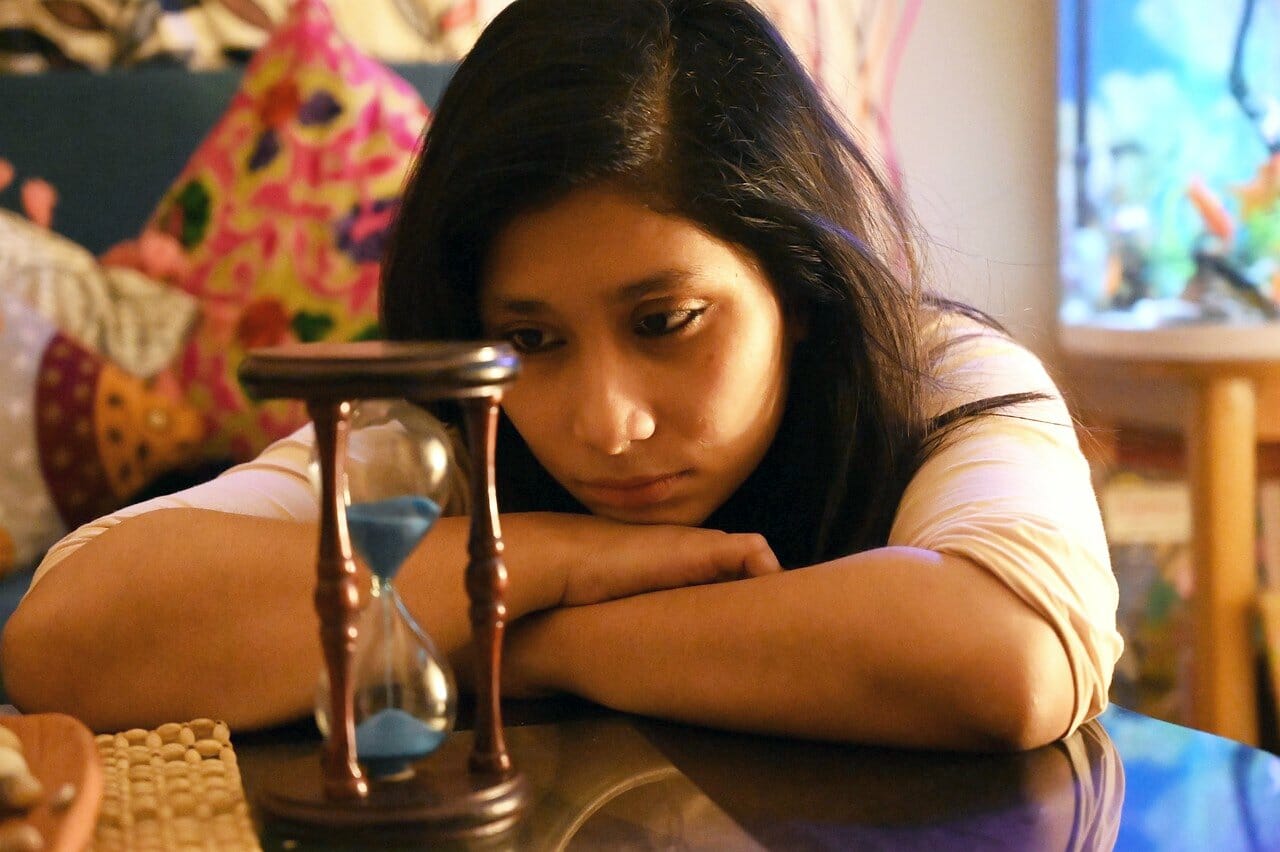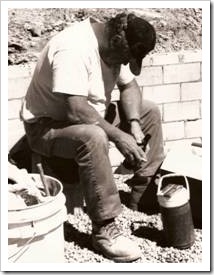
In any personal development program, there comes a time when the coach asks the client to answer this question: What would you do if you only had one year to live?
If you have ever been seriously sick or had a chance to meet someone who had to answer this question for real, you know it is one of the biggest and most important questions in life.
Of course, I do not wish you to ever have to plan your last year for real, but playing with it in your mind may just do that thing it does to those who must do it in real life. However, this question is important for most people as a way to gain perspective.
About 90% of people live life without direction, purpose or drive. They live life based on what they must/should/have to do or what others might think of them and feel disempowered to take the responsibility over their own life.
The reason they do it is because their parents did just the same and their grandparents and great-grandparents before them. By living like this, they are neglecting to update the things that are important to them.
 Every frustration, failure or problem is an indication of such neglect to update our priorities. For example, in all my parenting workshops, parents claim the most important things they want for their kids are happiness, health and love, yet most of them spend most of their energy on fighting with their kids over homework, manners and housework.
Every frustration, failure or problem is an indication of such neglect to update our priorities. For example, in all my parenting workshops, parents claim the most important things they want for their kids are happiness, health and love, yet most of them spend most of their energy on fighting with their kids over homework, manners and housework.
This activity is an exercise in focus. It gets you to pick the most important things in your life and helps you focus on them. Facing death, some people pick their highest values and turn their death sentence into a wake-up call. For most of them, the devastating news holds the potential to live life to the fullest.
About 5 years ago, I met a truly remarkable old man. He was 65 years old and quickly became an inspiration to me.
When he was younger, Yanni was just a normal person, living a typical, stressful life. After years of not getting along with his wife, they went through an unpleasant divorce. The kids stayed with their mom and lost contact with Yanni.
In his early 50’s, Yanni discovered cancer had spread through his body. Doctors removed parts of his bowels, kidneys and lungs. When they finished taking out all these vital parts and were still unable to stop the spread of his cancer, they told him to think about what he would like to do in the last two to three months of his life.
So he did. Together with a lovely (and 30 years younger) nurse, who had taken care of him during his long stay at the hospital, he took off to Indonesia to spend the last days of his life relaxing on the beach in peace. While on this last holiday, he read many books about the power of the mind and worked on his emotions.
 According to him, he wanted to die in peace. Well, the third month came and went and nothing changed. Thinking he got a short extension, Yanni called his two grown kids and said, “Hi kids, it’s Dad. I have cancer all over my body and I’m about to die soon. Please come and spend my last days with me”.
According to him, he wanted to die in peace. Well, the third month came and went and nothing changed. Thinking he got a short extension, Yanni called his two grown kids and said, “Hi kids, it’s Dad. I have cancer all over my body and I’m about to die soon. Please come and spend my last days with me”.
Both his son and his daughter flew to Indonesia to be with him. They spent some time with him and he just kept getting stronger. When he finally realized he may live a little longer and went back home, the doctors said the cancer had disappeared.
I met him 15 years later. During that time, he had cheated death three times. In his “last” 15 years, Yanni traveled with his young wife (the nurse) around the world and did only the things he loved to do – traveling, taking pictures and writing.
How to list 100 things you would do if you had a year to live
- Remember you do not have to actually face death in order to imagine the last year of your life. Find a quiet spot, close your eyes and imagine.
- If your immediate reaction is, “One year is not enough time”, that is great! You are right. One year is not enough to do all the things we want to do, but we still waste so many precious moments doing things that are not so important. Making the shift into appreciating life is a good thing.
- If you have some things you do not want to do, treat them like pink elephants. In life you get what you focus on, so turn them around or get them off the list.
 Make sure you write everything down. It will help you examine your list later and check just how focused you are.
Make sure you write everything down. It will help you examine your list later and check just how focused you are.- When writing your list, do not be afraid to write your most desired dreams. It is your list and this is your life. You have the right to want things and the obligation to go after them.
- If you find it hard to imagine, think of others you know who have experienced such a thing. If you can, ask them for advice. If not, try to put yourself in their place and imagine their thoughts, feelings and desires. From Yanni’s example and many others’, I believe that doing the things you love will extend your life.
- At first, write everything you would like to achieve (you can peek at the list of things you want to do in your lifetime). Try putting a time limit on them and shrink them to what you can achieve within one year.
- It is natural to have “buts” – “But what about money”, “But what about the kids”, “But what about later”. If you had a year to live, you would only need money for a year, the kids would cherish every moment with you and want you to be happy and there would be no later. In your imagination, everything goes. If you cannot do the best for yourself in your last year, when can you do it?
My second book, In the Outback with Jasmine Banks, published this month, talks about living life with this list in mind.

Suddenly, every action, feeling, relationship and choice is called into question.
Jay’s story offers a fresh and powerful way to examine the most important parts of life and shift from ordinary existence to fascinating and exciting living. Joining Jay Banks as she goes through pain and awakening on her journey of liberation allows you to take an important step forward towards you own personal freedom.
Be happy,
Ronit
This post is part of the series Make a List:
- Make a list: List Making
- Make a list: About Myself
- Make a list: Friends and Friendships
- 100 Things I Want to Be, Do and Have in My Lifetime
- 100 Things that Make Me Happy
- Make a list: Childhood Memories
- How to Clean Away Resentment and Be Happy
- 100 Ways to Say “I Love You!”
- Make a list: What I like about me
- Make a list: Birthday Presents to Ask for
- Make a list: Improve My Life
- Make a list: Things to tell my parents
- Make a list: Beliefs about Money
- 100 Feelings I Want to Feel (and how to feel them)
- Make a list: If I Could Live Forever
- Make a list: Beliefs about Kids
- Make a list: Beliefs about Kids cont.
- Make a list: Events that Have Shaped Your Life
- Make a list: Ways to be kind
- Make a list: Be More Productive
- Make a list: Mistakes (and what I can learn from them)
- Make a list: Expectations
- Make a list: Beliefs about Traveling
- Make a list: Rules I Follow
- Make a list: Good Parenting Qualities
- Make a list: Excuses
- Make a list: Quotes to live by
- Make a list: How to use my time better
- If I Were Santa Claus
- What I Would Do If I Had One Year to Live
- 100 Things that Make Me Happy
- Make a list: Movies I loved
- Make a List: My Fears
- Make a List: Find your Happy-ism
- Make a List: Inspiring People
- Make a List: Books that have changed my life
- Make a list: Inspiring Movies
- Things to Be Grateful for
- Make a List: Ronit’s Gratitude Examples List
- Make a list: Life Lessons Learned
- Make a List: Self-Kindness
- Make a List: 100 Ways to Be Kind to Myself
- 100 Things I Want People to Think of Me
- Make a List: Judgment of Right from Wrong
- Make a List: 100 Reasons to Be Wealthy
- 100 Great Insights I Got from the Coronavirus
- How to Make Every Relationship You Want Good
- If I Only Knew: How to Learn from the Past
- Happy, Healthy, Successful Life Formula: Knowing vs. Doing
 Make sure you write everything down. It will help you examine your list later and check just how focused you are.
Make sure you write everything down. It will help you examine your list later and check just how focused you are.










